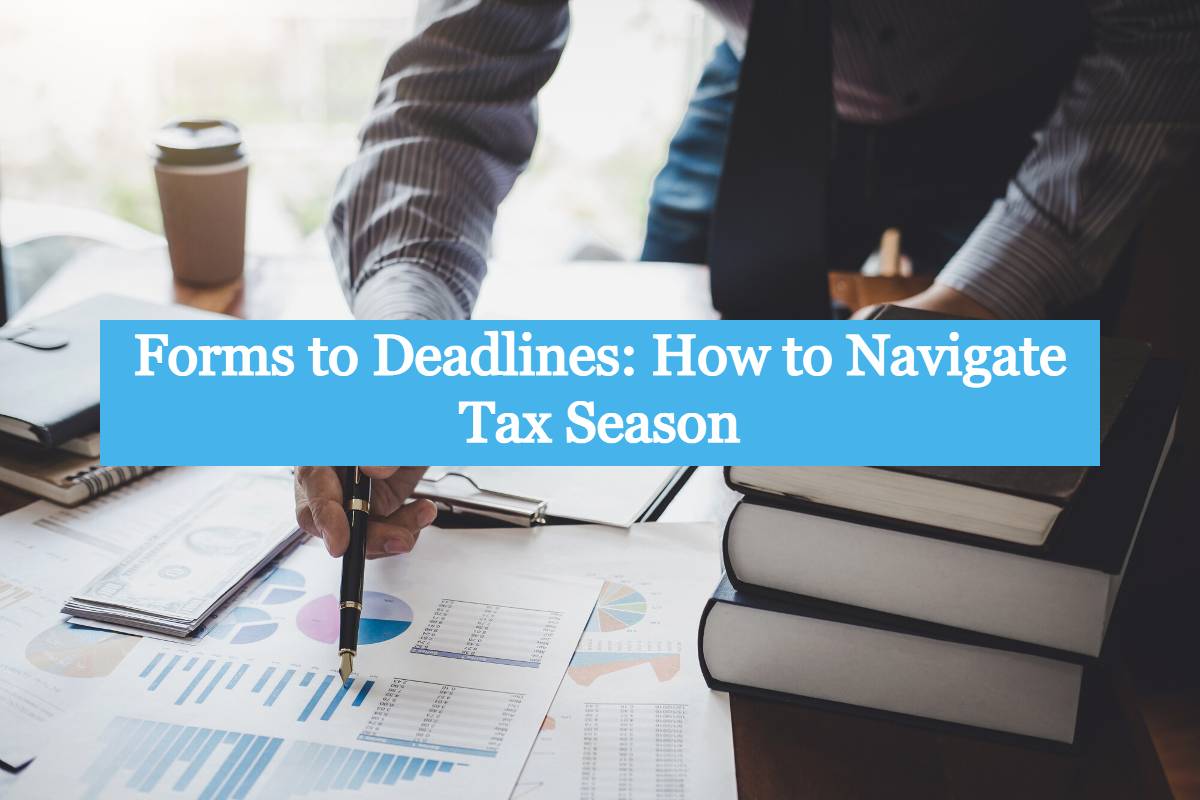Are you feeling overwhelmed and stressed out by tax season? Filing income taxes can be daunting, especially if you’re new to the process or have a more complex tax situation.
With so many different forms, deadlines, and regulations to navigate, it’s easy to feel lost and unsure where to start. But fear not because there are ways to make tax season more accessible and manageable.
You can successfully navigate tax season by understanding the types of taxes you may need to pay, how to pay them, and the various forms and deadlines involved. We will cover all this and more in this article.
So, whether you’re a first-time filer or an experienced taxpayer, read on to learn how to navigate tax season and ensure you’re filing your taxes accurately and on time.
Types of Taxes
First and foremost, it’s essential to understand the different types of taxes you may need to pay.
The most common types of taxes include income, sales, property, and excise taxes. Income tax is typically the most significant tax most people will pay, as it’s based on your income and can vary depending on your tax bracket.
Once you’ve determined which types of taxes you’ll need to pay, the next step is to figure out how to pay them. You may need to pay taxes quarterly or annually, depending on your situation.
When you work as an employee, your employer takes care of tax payments by withholding them from your paycheck and remitting them to the government on your behalf.
But if you’re self-employed or have other forms of income, you may be responsible for paying estimated taxes periodically throughout the year.
Failing to make these payments could result in penalties or interest charges, so it’s important to understand your tax obligations and plan accordingly to avoid any unwanted surprises come tax time.
Forms and Documents
When it comes time to file your taxes, there are a few different forms you may need to fill out. The most common conditions are 1040, 1040EZ, and 1040A.
1040 is the complete form taxpayers use with more complex tax situations. The 1040EZ and 1040A are shorter forms taxpayers can use in more straightforward tax situations.
Gathering all the necessary documents and information before filling out your tax forms can help streamline the process and ensure you accurately report your income and deductions.
W-2s or 1099s report your income from an employer or contractor, respectively.
These forms are crucial for accurately reporting your income. They will help ensure you’re paying taxes correctly.
In addition to these forms, you may also need to provide documentation of any other income you’ve earned throughout the year. Some examples of this are interest or income from a side hustle.
You should also gather any proof of deductions or credits you plan to claim. For example, receipts for charitable donations or documentation of business expenses.
Filing and Deadlines
Once you have your documents and information in order, it’s time to start filling out your tax forms.
Make sure to double-check all of your calculations and ensure that you’ve filled out all of the necessary sections accurately. You don’t want to make any mistakes that could cause you to owe more taxes or delay your refund.
One important deadline to keep in mind during tax season is April 15th. This is the deadline for filing your federal income tax return and paying any taxes you owe.
If you cannot file by this deadline, you can request an extension by completing Form 4868. However, remember that an extension only extends the deadline for filing taxes – it does not extend the deadline for paying any taxes you owe.
Unfiled IRS tax returns can be resolved with the help of a tax professional.
It’s also important to remember that state and local tax deadlines may differ from federal deadlines. Check with your state and local tax agencies to determine the deadlines for filing and paying your taxes.
Tax Assistance for Tax Season
Seeking help from a tax professional can be a smart move, especially if you have a more complex tax situation.
Tax professionals can guide tax laws and regulations that can be difficult to navigate independently. They can also help ensure that you’re taking advantage of all available deductions and credits. This can help reduce the taxes you owe or increase your refund.
Additionally, a tax professional can help you avoid mistakes that could result in penalties or interest charges. This can add up quickly. It’s important to note that while hiring a tax professional may come with a cost, the potential benefits of having an expert on your side can far outweigh the price in the long run.
If the complexity of your taxes has you feeling uncertain or stressed, seeking help from a tax professional is a wise choice. They can provide guidance on tax laws, help you maximize deductions and credits, and ensure you’re filing accurately and on time.
Don’t hesitate to reach out for assistance. It can save you time, money, and potential headaches down the road.
Tax Season Made Easy
In summary, navigating tax season can be complex, but it’s not impossible.
By understanding the different types of taxes you may need to pay, knowing how to pay taxes, gathering all necessary documents and information, and filing your tax forms accurately and on time, you can easily navigate tax season.
If you need help along the way, don’t hesitate to seek assistance from a tax professional. If you’d like to learn more about how to manage taxes, check out the related articles on this page.




